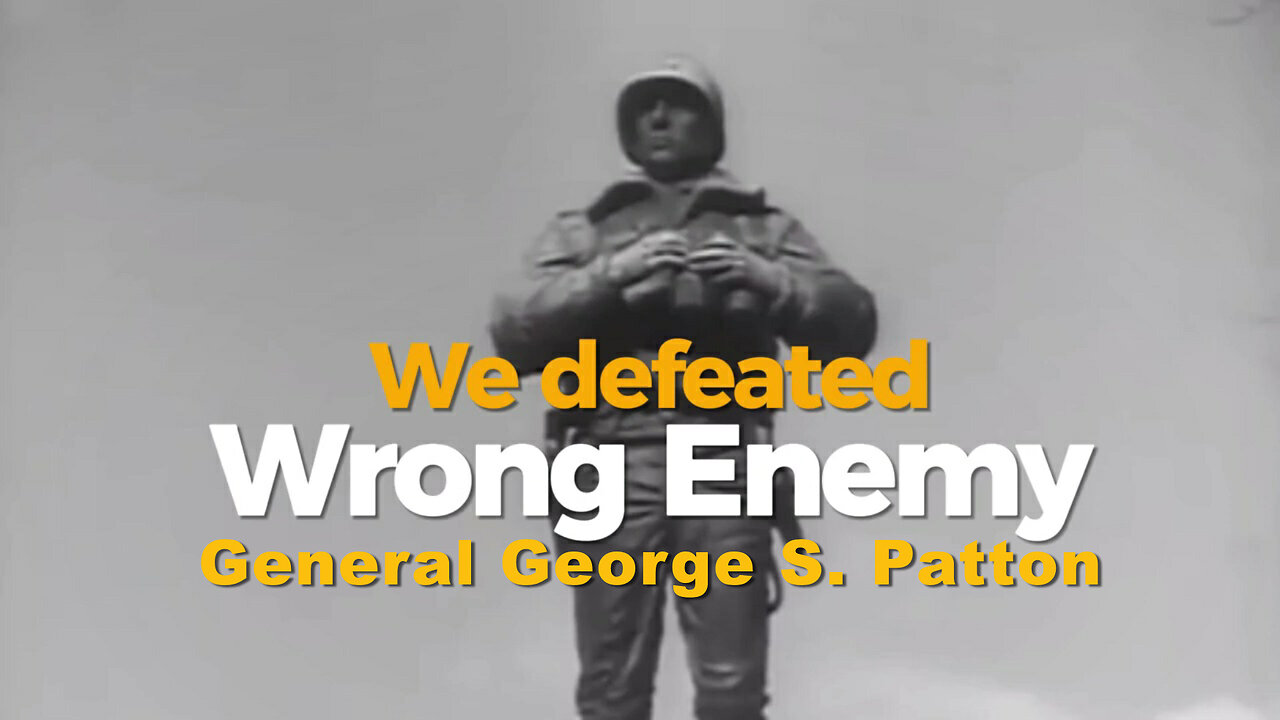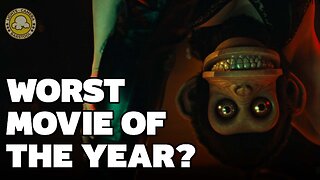Premium Only Content

Who Did General Patton Mean by "Wrong Enemy"? No - Not Only Soviets!
General George S. Patton's controversial remark, "We defeated the wrong enemy." What did Patton really mean, and how did his views on the Soviet Union and Nazi Germany shape his controversial legacy? Explore Patton's unsettling anti-Semitic beliefs, his admiration for German soldiers, and his contentious stance on post-war justice. Join us as we unravel the complex and troubling aspects of Patton's worldview.
This video delves into the controversial and provocative views of General George S. Patton, particularly focusing on his statement, "We defeated the wrong enemy." It explores the implications of this statement and what Patton might have meant by it. During World War II, Patton was a prominent general in the Allied forces fighting against Nazi Germany. However, towards the end of the war, he expressed concerns that the Soviet Union posed a greater threat than the Nazis and suggested that the Germans might have been better allies against the Soviets.
The video highlights Patton's documented anti-Semitism, including his derogatory views towards Jews. It discusses his belief that Jews were "lower than animals" and his controversial management of Jewish displaced persons camps after the war, where he reportedly insisted on keeping them under armed guard. Patton's views extended beyond Jews to other groups; he also expressed disdain for the Soviets, referring to them as "subhuman" and the "degenerate descendants of Genghis Khan."
The video covers Patton's admiration for German soldiers, whom he saw as honorable men fighting for their country, in stark contrast to his low regard for the Soviet forces. It also touches on Patton's criticisms of the Nuremberg Trials, where he opposed the prosecution of Germans, seeing it as driven by "vengeful Jewish conspirators."
Overall, the video provides a deep dive into Patton's complex and often troubling worldview, his anti-Semitic beliefs, and his controversial stance on post-war geopolitics. It explores the historical context of his statements, shedding light on the broader discussions about anti-Semitism, Nazi ideology, the Soviet Union, and the political dynamics of the post-war era.
Source ‘Magical History’:
https://www.youtube.com/@this-is-Magical-History
-
 49:04
49:04
Lights, Camera, Barstool
1 day agoIs The Monkey The Worst Movie Of The Year?? + Amazon Gets Bond
2.59K -
 24:19
24:19
Adam Carolla
18 hours agoDiddy’s Legal Drama Escalates, Smuggler Caught Hiding WHAT? + Philly Eagles & The White House #news
1.28K1 -
 10:12
10:12
Mike Rowe
2 days agoClint Hill: What A Man. What A Life. | The Way I Heard It with Mike Rowe
5.6K5 -
 1:31:52
1:31:52
Redacted News
1 hour agoBOMBSHELL! This is war! FBI whistleblowers reveal Epstein files being destroyed? | Redacted News
19.3K84 -
 48:55
48:55
Candace Show Podcast
2 hours agoSTOP EVERYTHING. They FINALLY Mentioned ME In The Blake Lively Lawsuit! | Candace Ep 152
14.1K24 -
 1:02:51
1:02:51
In The Litter Box w/ Jewels & Catturd
21 hours agoWhere are the Epstein Files? | In the Litter Box w/ Jewels & Catturd – Ep. 750 – 2/26/2025
50K44 -
 LIVE
LIVE
Revenge of the Cis
3 hours agoLocals Episode 198: Suits
507 watching -
 1:38:56
1:38:56
SLS - Street League Skateboarding
1 day agoTop Moments from the Second Half of the 2024 SLS Championship Tour! All The 9’s 🔥
12K1 -
 24:22
24:22
Breaking Points
5 hours agoHouse GOP RAMS THROUGH Medicaid Cuts
29.2K17 -
 1:24:15
1:24:15
The Quartering
5 hours agoRep. Swalwell's VIRAL Confrontation, Jeff Bezos Op-Ed Announcement, and Canada's Anti-Musk Campaign
75.6K22